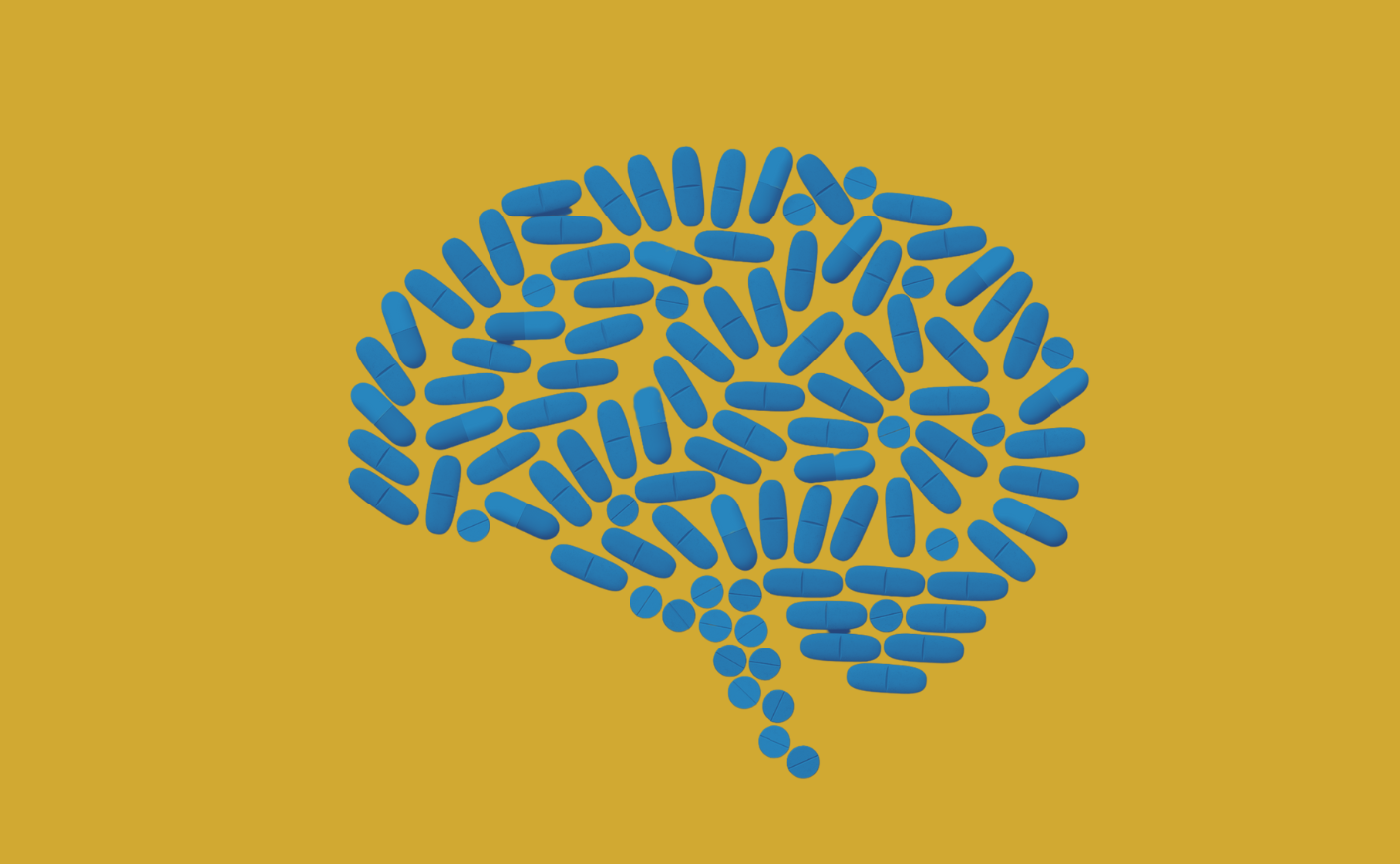We’ve all seen the Viagra commercials where a man and woman are doing some sort of mundane chore, like painting a guest room, and then suddenly they’re in the mood. The popular erectile dysfunction medication is a cultural touchstone, having long been famous for helping couples — in the words of Marvin Gaye — get it on, no matter their age. But what if this little blue pill could improve not only your sex life, but also your brain health?
A recent study from the Cleveland Clinic found that erectile dysfunction drugs like Viagra, also known by its generic name sildenafil, may reduce the risk of developing Alzheimer’s disease, the most common form of dementia. While these findings aren’t conclusive, they do offer a glimmer of hope for preventing future cases. Nearly 7 million Americans are living with this progressive disorder, and by 2020 that number is expected to triple, highlighting the need for more prevention and new forms of treatments.
Here’s a closer look at these findings, plus how researchers are using artificial intelligence to discover new uses for old medications like Viagra.
Can Viagra boost brain health?
Sildenafil has historically been used to treat several conditions — the drug manufacturer Pfizer originally designed it as a heart medication to treat hypertension and the chest pain known as angina. The company didn’t realize it also improved erections until it started conducting clinical trials in the 1980s. And in more recent years, there has been growing evidence that Viagra could potentially improve brain function. That’s thanks in part to artificial intelligence that researchers say helped “integrate data across multiple domains, which all indicated sildenafil’s potential against this devastating neurological disease.”
The latest study, published in the journal Neurology, was based on nearly 270,000 men aged 40 years or older who’d been diagnosed with erectile dysfunction. During the five-year study, 1,119 of those who participated were diagnosed with Alzheimer’s disease. That’s when scientists noticed a startling pattern: The subjects who took Viagra or a similar drug had an 18 percent lower risk of developing the degenerative brain disorder, compared with men who weren’t given the drug. The association was strongest among the men who took Viagra more often — those who were prescribed more of the erectile dysfunction pills had a 44 percent lower risk.
“We used artificial intelligence to integrate data across multiple domains, which all indicated sildenafil’s potential against this devastating neurological disease,” lead researcher Feixiong Cheng, Ph.D. said in a news release.
The study builds upon 2021 findings published in the journal Nature Aging. After analyzing more than 7 million health insurance claims, researchers concluded that those who took Viagra were 69 percent less likely to develop Alzheimer’s disease, compared to those who didn’t.
Why might Viagra be linked with a lower risk of dementia?
Sildenafil is part of a class of drugs known as phosphodiesterase Type 5 Inhibitors — or PDE-5 drugs. The drugs work by dilating blood vessels and increasing blood flow throughout parts of the body — and, as it turns out, that doesn’t just include the penis.
Though evidence has mainly been observed in animal studies, PDE-5 inhibitors may also increase blood flow to the brain, preventing cognitive impairment. But the principal investigator of the study Ruth Brauer says these findings are only “possible mechanisms” in humans.
“There is an idea that if we can help with improving blood flow in the brain, maybe we can also reduce the risk for Alzheimer’s disease,” said Sevil Yasar, who co-authored an editorial that accompanied the study.
What kind of additional research is necessary?
While some of these findings are compelling, you shouldn’t rush to your doctor to get a prescription for Viagra if you’re concerned about protecting your memory.
A study published in a 2022 issue of the journal Brain Communications contradicted some of the promising 2021 findings: Harvard Medical School and the National Institute on Aging found “no association” between the use of sildenafil and the risk of Alzheimer’s disease. So clearly, there’s no definitive word yet on whether the little blue pill can truly affect brain health.
More research is needed to prove that the drugs are causing the brain-protecting effect. For instance, it’s unclear whether Viagra protects against Alzheimer’s or whether men who are already less likely to develop the neurological condition are simply more likely to use the pills.
“Someone who is more likely to take a pill like that at 70, they’re probably more active, they’re more likely involved with their partners, things like that,” Honig said. “There’s too many confounding variables to make a definitive statement that it’s the pills or it’s the patients that are taking the pills that are less likely to be neurologically impaired.”
That’s why experts are calling for clinical trials that also include women, because so far it’s unclear whether the drug has any impact on them.
“These observational studies are very speculative, but I think they’re interesting in terms of exploring new options and potential treatments for Alzheimer’s disease,” Ronald Petersen, M.D., director of the Mayo Clinic Alzheimer’s Disease Research Center, told AARP. “It’s an example of how people are thinking more expansively about potential treatments for Alzheimer’s disease,” he added. “What we need is a randomized clinical trial.”









